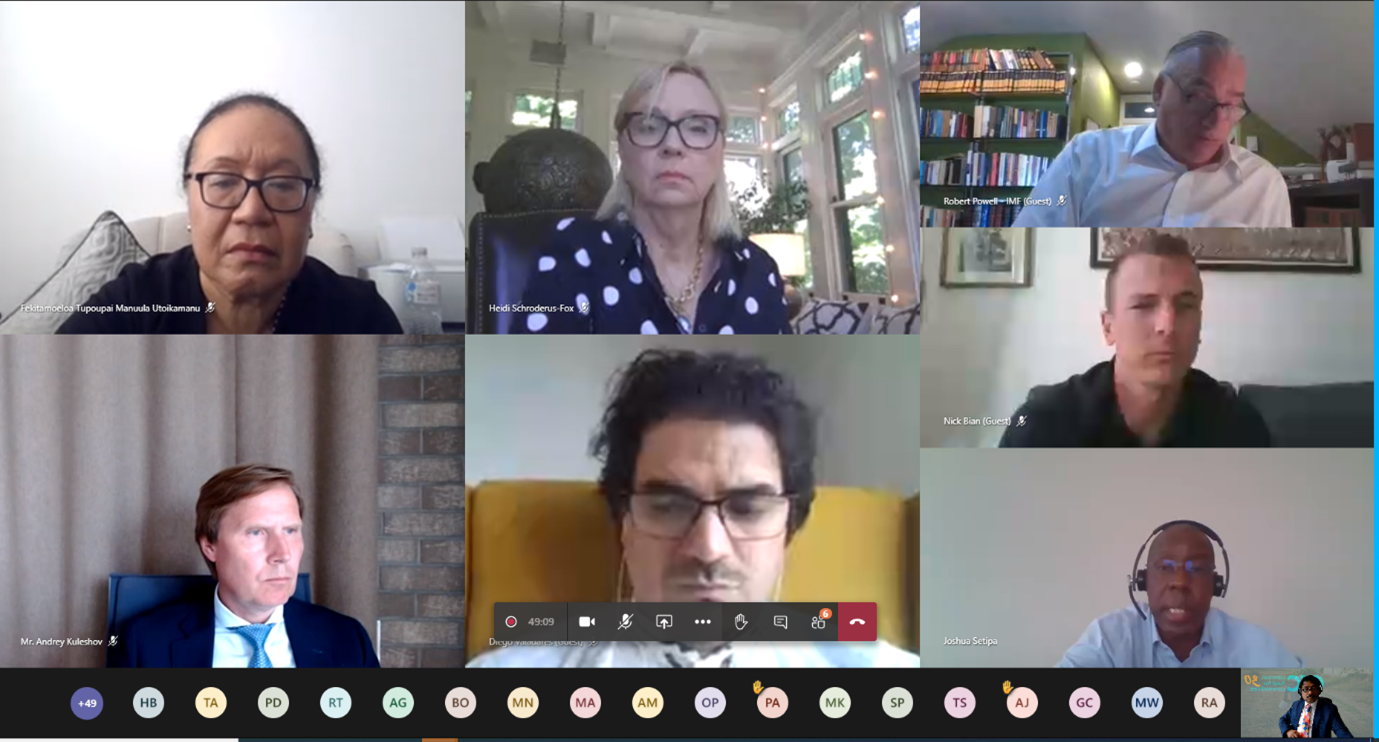CFC participates on UN Meeting on LDCs
The CFC participated on the Twentieth meeting of the Inter-Agency Consultative Group (IACG) of the United Nations system and international organizations on the Implementation of the Istanbul Programme of Action (IPoA) for the Least Developed Countries (LDCs). The meeting, organized by the UN-OHRLLS, was held virtually on 16 June 2020. It was an excellent opportunity for the different organizations to discuss the progress in the implementation of the IPoA and to provide further details on how they are assisting the LDCs in facing the COVID-19 pandemic.
CFC’s contribution focused on the issue of commodity dependence, a condition shared by several LDCs, where a country is unable to convert its natural endowment into sustained economic development. To overcome this challenge, the commodity dependent countries need to diversify their economy and invest in projects that add more value to their products, enhancing their participation in upper parts of the value chains.
The CFC has been precisely engaged in doing this since 1989. Towards this goal, the Fund provides financial support for innovative projects with high impact promoting the interests of the smallholder farmers and small and medium enterprises (SMEs) engaged in commodity production, processing and trading in Developing Countries, contributing to the implementation of several key priorities of the IPoA.
In this regard, during the period 2013 to 2020, the CFC has approved 27 projects operating in LDCs, with a total value of USD 63,9 million. These projects develop new opportunities for small-holder producers in LDCs through increases in production and productivity, horizontal and vertical diversification, value-addition, increasing access to markets, capacity building and risk management.
Talking about the current challenges faced by the LDCs the CFC explained that it is closely monitoring the impacts of the Covid-19 pandemic in its member countries and is sentient to the particular vulnerabilities of the smallholders of the agricultural value chains in which it operates. While the actual impact to rural communities will necessarily differ across countries and value chains, the economic livelihoods of smallholders are likely to be affected by a number of common factors.
The CFC is aware of the obligation that follows from the accumulated experience of its decade-long support for smallholder livelihoods and is increasing its efforts to provide the much needed finance for the continued operation of agricultural value chains. As a result, the CFC intends to implement an emergency liquidity support to SMEs in connection with value chain disruption caused by the pandemic. The modalities and amount of these measures will be published upon approval.
On the whole, one fundamental lesson of the COVID-19 is the realization that unless poverty is addressed globally, with a renewed sense of urgency, the spread of killing viruses like COVID-19 could always run the risk of wreaking havoc in both developing and developed world. This is why we have to start preparing now and encourage ourselves to herald a return to normal. There will, however, be no normal if we forsake the idea of humanity and turn our backs on those forgotten people, near and far.
The full statement of the CFC in the meeting can be found here.

